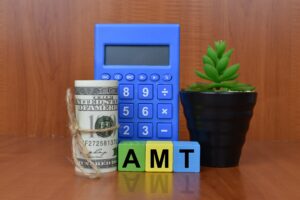Should You Pay Estimated Taxes?
For most people tax time only comes once year. However, for anyone who has to pay estimated taxes a large tax bill could be due several times a year. Again, most people do not have to worry about paying estimated taxes, but there are several circumstances that will put you in that category. The most common reason people need to pay estimated taxes is because they have self-employment income, but there are other reasons as well. You may need to pay estimated taxes if any of the following apply to you.
- You or your spouse earned self-employment income.
- If the stock market was kind and you cashed out a large portion of your gains, but you did not adjust your withholding on your W-4, then you might need to pay estimated taxes.
- If you hire a nanny and pay her federal payroll tax for her, then you can make those in quarterly estimated taxes.
- Any income you earned that was not subject to federal withholding on your W-4 could be subject to estimated taxes.
Not everyone who falls into one of these categories needs to pay estimated tax. So how do you decide if you should or shouldn’t pay these taxes? There are many answers to this question, but the bottom line is if you made enough income from untaxed sources that you will cause you to owe taxes when you file your return then you should make estimated tax payments. If you fail to do so, then you could pay a penalty. On the other hand if your deductions and credits will be more than the tax amount you would owe on this income then you are most likely OK in skipping these estimated payments. If you still aren’t sure whether or not you should make estimated tax payments, then contact us at GROCO for more advice. We can look at your situation and help you determine if these payments are necessary. Please contact us for help at 1-877-CPA-2006, or click here.
Business Angels for Your Startup Business
Business Angels for Your Startup Business By Mike Cain Setting up a new business can be a daunting prospect. There’s the possibility of failure, and with it, the risk of losing the money you’ve invested in your company, as well as seeing all your months or even years of hard work go to waste. But,…
Securing Second- and Third-Round Venture Capital Financing
Securing Second- and Third-Round Venture Capital Financing By Jim D. Ray Widget sales are booming – the competition is scrambling, demand is up, and the books are finally treading water. Your core management team has big ideas for the future of Widget Inc. Opportunity is abundant; but how will you fund that next big leap?…
Ten Ways Start-ups Use Venture Leases And Loans To Generate Millions
Ten Ways Start-ups Use Venture Leases And Loans To Generate Millions By George A. Parker The rise of venture leasing and lending has created an opportunity for sophisticated entrepreneurs to gain a competitive advantage. Savvy entrepreneurs are using venture leases and loans to generate millions of dollars for shareholders by leveraging existing venture capital. They…
Avoiding AMT
Avoiding AMT More and more taxpayers are finding a hidden tax on their individual tax returns. The alternative minimum tax (AMT) attempts to ensure that high income individuals who benefit from the tax advantages of certain deductions and exemptions will pay at least a minimum amount of tax. This tax was originally designed to keep…




